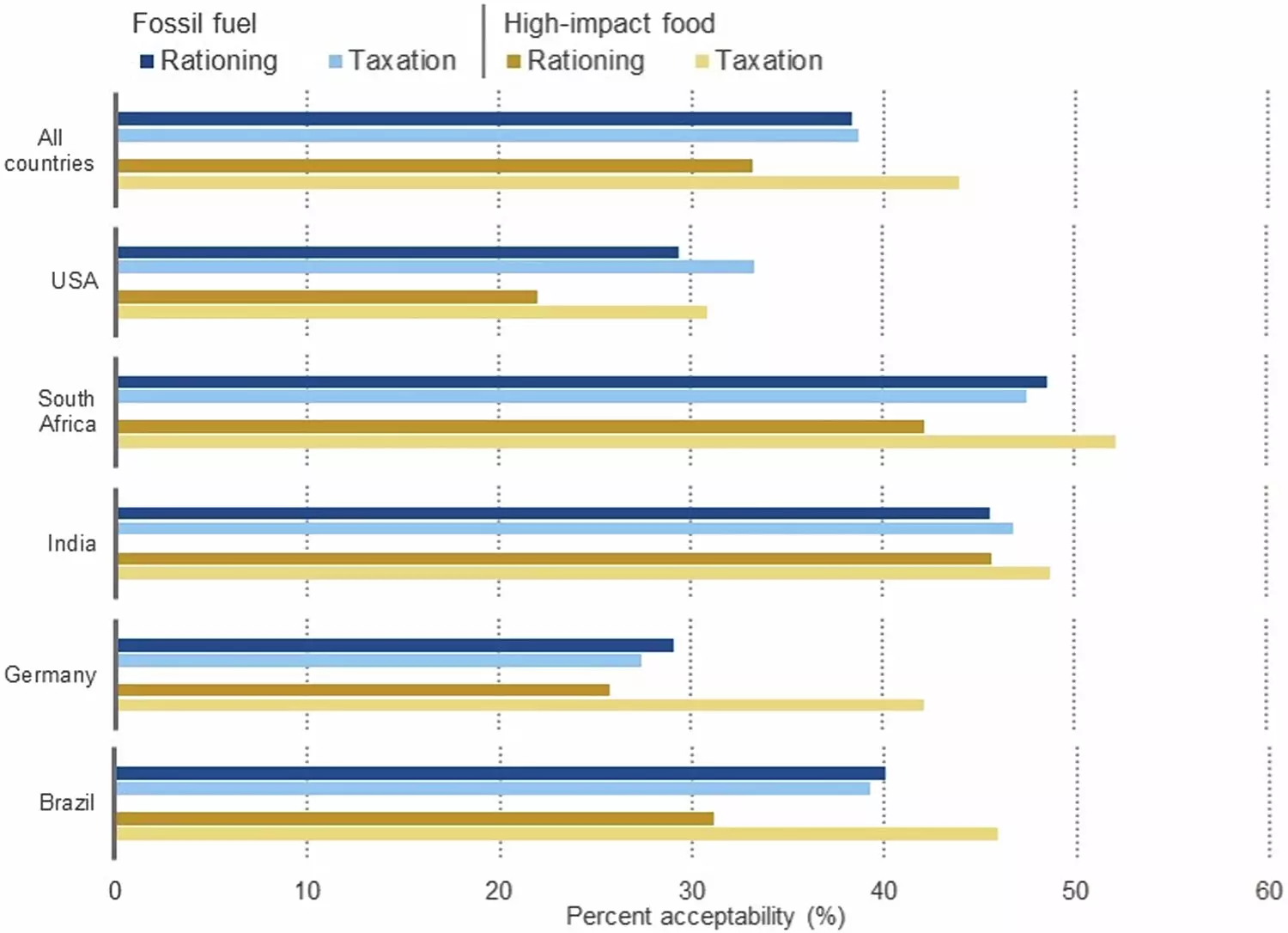The pressing need to address climate change has ignited a compelling debate around consumption patterns worldwide. An emerging solution in this discourse is the concept of rationing essential goods, particularly those with significant environmental footprints, such as meat and fossil fuels. Recent research led by the Climate Change Leadership Group at Uppsala University has revealed intriguing insights regarding public acceptance of rationing as a means of promoting sustainable lifestyles. In this article, we dissect the findings of this critical study and explore the implications for future climate policies.
Rationing may evoke images of wartime scarcity and imposed limitations, yet it is also a pragmatic response to an existential threat—climate change. In the face of escalating environmental degradation and its consequences, the study suggests that nearly 40% of respondents from a diverse global sample are open to accepting rationing of high-impact goods. This dissonance—that rationing can be viewed as both harsh and necessary—highlights a complex public sentiment that warrants further examination.
Oskar Lindgren, a lead researcher in this study, posits that the perceived fairness of such measures is a vital factor fueling public acceptance. Unlike carbon taxes, which often disproportionately affect lower-income households, rationing can be designed to be equitable, thereby encouraging broader societal compliance. In essence, fairness in climate policy is not just a moral standard but a crucial element for fostering support amongst the populace.
A Comparative Analysis: Rationing vs. Taxation
Traditional climate mitigation strategies—primarily financial instruments like carbon taxes—have been scrutinized for their efficacy and fairness. The new research contrasts these economic approaches with the public opinion on rationing, delivering surprising results. Both fuel and emissions-intensive food rationing revealed an acceptance rate that rivals that of corresponding taxes, with 38% of respondents favoring fuel rationing compared to 39% for fuel taxes.
These statistics challenge common preconceptions about public resistance to direct consumption limits. Interestingly, in countries like Germany, there is a notable trend; opposition to fossil fuel taxes exceeds that of rationing measures. This finding underscores the necessity of nuanced policy frameworks that consider the psychological and socio-economic variables at play in public response to climate action strategies.
The study’s scope extended to nearly 9,000 participants across Brazil, India, Germany, South Africa, and the United States, revealing stark regional differences in attitudes toward rationing. Notably, respondents from India and South Africa expressed considerable support for rationing, while American and German respondents exhibited greater resistance, particularly regarding meat rationing.
This divergence raises pertinent questions about cultural and contextual influences on climate policy acceptance. Younger, educated individuals, alongside those who express a heightened concern for climate change, showed a more favorable disposition towards rationing. These demographics represent a critical ally in the fight against climate change and should inform how campaigns and policies are shaped moving forward.
The findings of this research emphasize the urgency for further investigations into the design of rationing policies. While water rationing is already being implemented in various regions due to scarcity, the possibility of extending such measures to other high-impact resources could be met with more welcoming attitudes than previously thought.
The study hints at a growing readiness among the public to adapt their consumption behaviors for the sake of the planet—especially if they perceive that others are equally engaged. By establishing a cooperative framework where rationing is normalized and equitably administered, policymakers could harness public interest and commitment to sustainable practices.
The debate over consumption in light of climate change illustrates a crucial intersection between environmental necessity and social perception. As research continues to unwind the complexities of public attitudes towards rationing, it becomes clear that these policies could potentially unlock a more equitable path to sustainability. The prospect of decreased consumption of climate-intensive goods through fair and accepted rationing methods shows promise, driving hope for a collective response to one of humanity’s most daunting challenges.


Leave a Reply